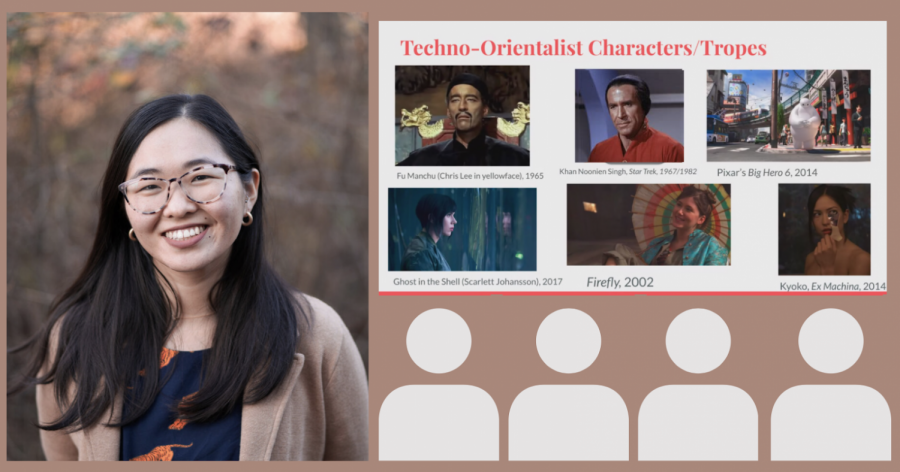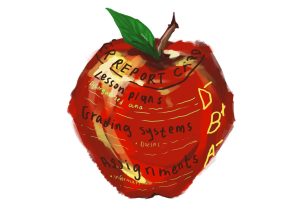Guest speaker at Chinese Honor Society speaks about techno-orientalism
Graphic by Keertana Senthilkumar
Prof. Amin-Hong has a PhD in American Studies and has done years of research on topics such as the Asian diaspora. “The reason I asked Prof. Amin-Hong to come in was a combination of many things: I was drawn to the uniqueness of her topic, and I thought that her research at the intersection of technology, literature, gender, and ethnicity and identity would provide exposure that can be difficult to find at TJ,” Cheng said.
May 31, 2021
Professor Heidi Amin-Hong visited Chinese Honor Society (CHS) during 8th period to talk about techno-orientalism on Friday, May 14. Prof. Amin-Hong’s work has been published in the Los Angeles Review of Books and Pacific Standard as well as the Asian American Literary Review.
“Techno-orientalism is so pervasive, yet it’s such a niche topic that I feel like [it] is currently limited to academia. I was really glad that Professor Amin-Hong was willing to come and speak with us about it throughout our email correspondence and her presentation. I loved seeing her passion towards the subject matter,” CHS co-president and senior Emma Cheng.
Prof. Amin-Hong has studied Asian-American literature and history extensively.
“Prof. Amin-Hong addressed a lot of interesting points, including that we tend not to read much Asian-American literature in school, which can promote ignorance and, consequently, stereotypes,” Cheng said. “A large portion of her presentation focused on the fact that these stereotypes can emerge in pop culture through techno-orientalism, and I think that having a name for this occurrence is eye-opening.”
Prof. Amin-Hong also covered common Asian stereotypes present in media which contribute to techno-orientalism, through providing examples.
“I think it’s astonishing how ingrained and prevalent techno-orientalism is in our current society, especially with the constant fetishization of Asian countries to fit a certain stereotype. Examples of techno-orientalism include how Big Hero 6 is placed in an alternate Japan where they are centered as the forefront of technological innovation with the robot obsession and a city called “San Fransokyo,” senior Jason He said.
These stereotypes promote the idea that Asian people are more mechanical or robotic, rather than human.
“I think this topic is something that is very interesting but is only a subset of larger structural racial problems that we have to concern ourselves with. Possible topics include how we can stop this constant technologized trope of the Asian race and also what we can do as consumers, students, researchers, and workers,” He said.
The subject of techno-orientalism may be particularly relevant at Jefferson, which not only has a large percentage of Asian students but is also STEM-focused.
“Because of the big STEM focus at TJ, I’ve always wanted CHS to be a kind of outlet for students where they can engage in their culture or learn more about Chinese culture,” Cheng said. “Although CHS is traditionally centered around Chinese culture, I think it can go beyond that to allow students a place to understand the intertwining of Chinese and American culture. We don’t always make the time to understand our own identities, or the struggle and beauty of living at the overlap of multiple cultures; I hope that the presentation gave students the opportunity to do this.”






